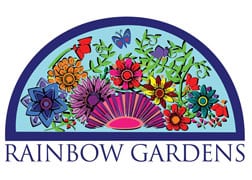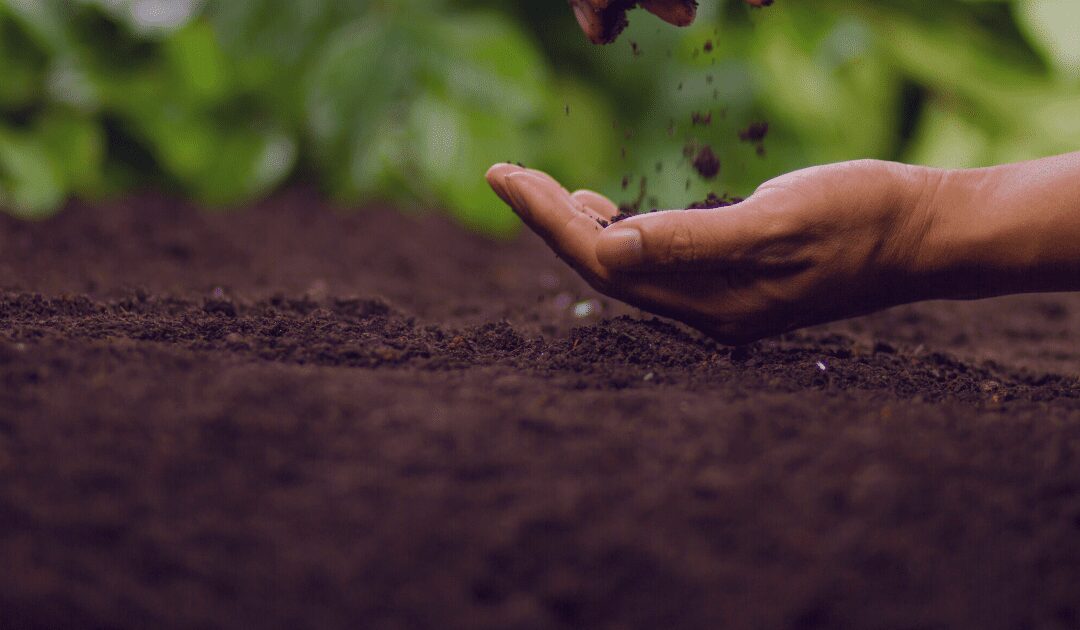When you add organic matter to garden soil, it supports the growth of microorganisms and helps retain moisture. The organic matter in your soil also provides nutrients for plants, improves your plants’ ability to absorb nutrients and water, and makes it easier for roots to grow through soil that has now become looser and more workable.
Organic materials can be added in many forms: compost (made from plant materials), animal manure, peat moss, pine bark mulches, soil conditioners, grass clippings and shredded leaves are a few you might choose.
To add these materials to new garden plots:
- Use a tiller or shovel to dig at least 8-12 inches into native soil where you want to add organic matter. (Deeper is better if you can do it. 15″-18″ is terrific!) Remove any rocks or debris you find in this layer of soil before digging deeper into your garden bed.
- Add about 3″ of whichever organic material you want (or a blend of a few) and thoroughly mix everything together until it’s evenly distributed throughout all parts of your garden bed.
To add these materials to existing beds:
- Simply mix about 2-3” of organic material into the top 4-6″ of soil each growing season.


What Happens When Organic Matter Breaks Down?
Humus is a dark, spongy material that is the product of decomposition. It’s one of the most important components of soil because it provides structure and texture for plants to grow in. When you build your soil by adding organic matter to your garden soil, humus forms as microbes break down the new material into smaller pieces. As these microorganisms continue to do their job over time, they produce more and more humus, creating the perfect nutrient-rich environment for plant development.
The more humus in your soil, the better it is for plants to grow in. Humus helps retain water and nutrients, provides air space for roots to grow into, and creates pathways through which water can move around. Humus also helps microorganisms access nutrients in the soil so that they can break down organic materials even more effectively.


Just like us, plants need to eat in order to grow into a healthy, mature specimen. In order for plants to eat, your soil must be able to provide nourishment to their roots. Guess who has to provide your soil with nourishment so they, in turn, can feed your plants? Yep, you!
Come see us at Rainbow Gardens where we make it easy to feed your soil. We carry a wide selection of bagged products which makes it convenient to just load a few products in your car and take them home to start feeding your soil right away. If you think dirt is just dirt, once you start feeding your soil and see the insane difference in your plants, we bet you quickly change your mind. Whatcha waiting for? The spring season is right around the corner!
~The Happy Gardener, Lisa Mulroy


What can i add to potting soil prior to planting my veggie seeds and plants? Raised bed gargen
Hi Jeanette,
Soil conditioner or compost are very beneficial to add to your soil. All of the organic material listed in the article is beneficial to potted containers and raised beds as well. For an added boost, you could mix in some quality slow-release granular organic fertilizer. Try FoxFarm JumpStart, or Espoma Vegetable Gardening fertilizers.
When do green bedgonias, iris and canna arrive at your store?
What type impatient is best for San Antonio heat?
Begonias are starting to trickle in, same as canna. Iris are here and ready! We really like New Guinea impatiens because of their bigger, darker-green foliage and vibrant colors. They can also tolerate a bit of sun (a bit), unlike regular impatiens. New Guinea impatiens haven’t arrived yet, but will most likely be here soon. You can call the location of your choice to double check inventory before coming in.
Do native wildflower/pollenater gardens require this same kind of prep?
Wildflower areas don’t need as much prep as they are suited to growing in native soil. You will need to remove competing weeds and vegetation so that wildflower seeds can have good soil contact. Remember that wildflowers should be planted Sept – Dec in San Antonio.
For raised beds or in ground pollinator gardens, it depends on what you are growing. Most gardens are improved by adding organic material to loosen soil, help with drainage, and add nutrients.